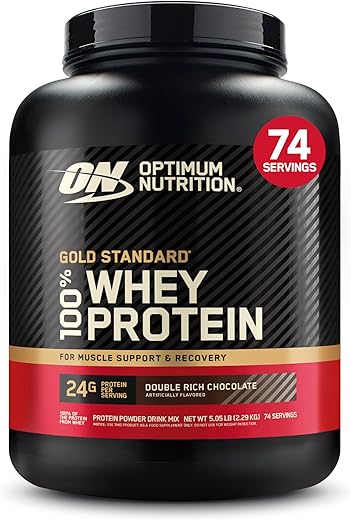Diets and Nutrition
When it comes to losing weight or improving health, many people focus solely on dieting without considering nutrition, and that’s a big mistake. The right approach combines both! A diet is simply what you eat, but nutrition is about ensuring your body gets the right balance of nutrients to function optimally. Many people make the error of cutting calories or following trendy diets without considering whether they are truly nourishing their bodies.
The key to long-term health and wellness is combining diets with proper nutrition so you can achieve your goals without harming your health. In this article, we’ll cover 10 expert-backed tips to help you eat well, lose weight (if needed), and feel fantastic.
Understand the Difference Between Dieting and Nutrition
A diet is simply the food you eat, whether it’s a structured plan like keto, paleo, Mediterranean, or just your daily habits. Nutrition, on the other hand, refers to the balance of macronutrients (proteins, fats, carbohydrates) and micronutrients (vitamins and minerals) your body needs.
- Problem: Many people follow extreme diets without thinking about nutrition, leading to deficiencies and health issues.
- Solution: Choose a diet that is nutrient-dense rather than one that only focuses on calorie restriction or quick fixes.
Choose Whole Foods Over Processed Foods
Processed foods are often stripped of essential nutrients and loaded with added sugars, unhealthy fats, and artificial ingredients.
- Why it matters: Whole foods like vegetables, fruits, lean proteins, whole grains, and healthy fats provide the vitamins, minerals, and fiber your body needs.
- How to do it: Avoid pre-packaged meals and cook from scratch whenever possible. If you must buy packaged food, look for minimal ingredients and no added sugars.
Balance Macronutrients Properly
Many trendy diets eliminate entire macronutrient groups (like carbs or fats), but all three are essential in the right balance.
- Protein: Builds muscle, supports metabolism, and keeps you full longer.
- Healthy fats: Support brain function and hormone health (avocados, nuts, olive oil).
- Complex carbs: Provide energy and fiber (quinoa, brown rice, sweet potatoes).
- Tip: Aim for 40% carbs, 30% protein, and 30% healthy fats in your meals, or adjust based on your body’s needs.
Don’t Fall for Fad Diets
Fad diets often promise quick results but are unsustainable and can lead to nutrient deficiencies.
- Examples of bad diets: Extreme low-carb, juice cleanses, very low-calorie diets (VLCDs), and any diet eliminating whole food groups.
- What works instead: A sustainable eating plan that includes all necessary nutrients in the right proportions.
Stay Hydrated
Water is critical for digestion, energy, and metabolism. Many people mistake thirst for hunger!
- Tip: Aim for at least 8 glasses (64 ounces) of water per day, more if you exercise.
- Bonus: Add lemon or cucumber slices for flavor without added sugar.
Prioritize Gut Health
Your gut microbiome plays a huge role in metabolism, digestion, and overall health.
- Good for gut health: Yogurt, kefir, sauerkraut, kimchi, and high-fiber foods.
- Avoid: Too much sugar, artificial sweeteners, and processed foods, which harm gut bacteria.
- Tip: Take a probiotic supplement if needed, but whole foods are best.
Meal Planning and Prep for Success
Planning your meals helps you make healthier choices and stick to a nutritious diet.
- Benefits: Saves time, money, and keeps you on track.
- Tip: Plan meals with lean protein, vegetables, whole grains, and healthy fats.
- Example: Cook batches of chicken, quinoa, and roasted veggies for easy meals.
Mindful Eating Over Restriction
Strict dieting often leads to binge eating or an unhealthy relationship with food. Instead, focus on mindful eating.
- How to practice: Eat slowly, savor your food, and listen to your hunger cues.
- Avoid: Emotional eating and eating while distracted (like watching TV).
Exercise Complements Nutrition
A good diet is only part of the equation—movement is essential for overall health.
- Why it matters: Exercise boosts metabolism, supports heart health, and improves mood.
- Best types: A mix of strength training, cardio, and flexibility exercises.
- Tip: Find an activity you enjoy so it becomes a lifestyle habit!
Follow the 80/20 Rule
You don’t need to eat “perfectly” all the time—allowing some flexibility makes healthy eating sustainable.
- What it means: 80% of your diet is nutrient-dense, whole foods, while 20% allows for treats.
- Why it works: Prevents feelings of deprivation and makes dieting enjoyable.
- Tip: Plan indulgences rather than eating impulsively. Final Thoughts: A Balanced Approach to Diet and Nutrition
The best diet isn’t about deprivation or extremes, but rather about balance and sustainability. When you combine healthy eating habits with nutritional awareness, you’ll see better energy levels, improved health, and long-term success.
Recap of Key Points:
- Understand the difference between dieting and nutrition.
- Choose whole foods over processed foods.
- Balance macronutrients properly.
- Avoid fad diets.
- Stay hydrated.
- Prioritize gut health.
- Plan meals for success.
- Focus on mindful eating.
- Exercise to complement your diet.
- Follow the 80/20 rule for flexibility.
By applying these principles, you can create a sustainable, enjoyable, and nutrient-rich diet that supports your health goals while keeping you satisfied and energized.
What’s Next?
Start small! Pick one or two changes from this list and implement them today. Over time, these habits will become second nature, leading to long-term success and well-being.






